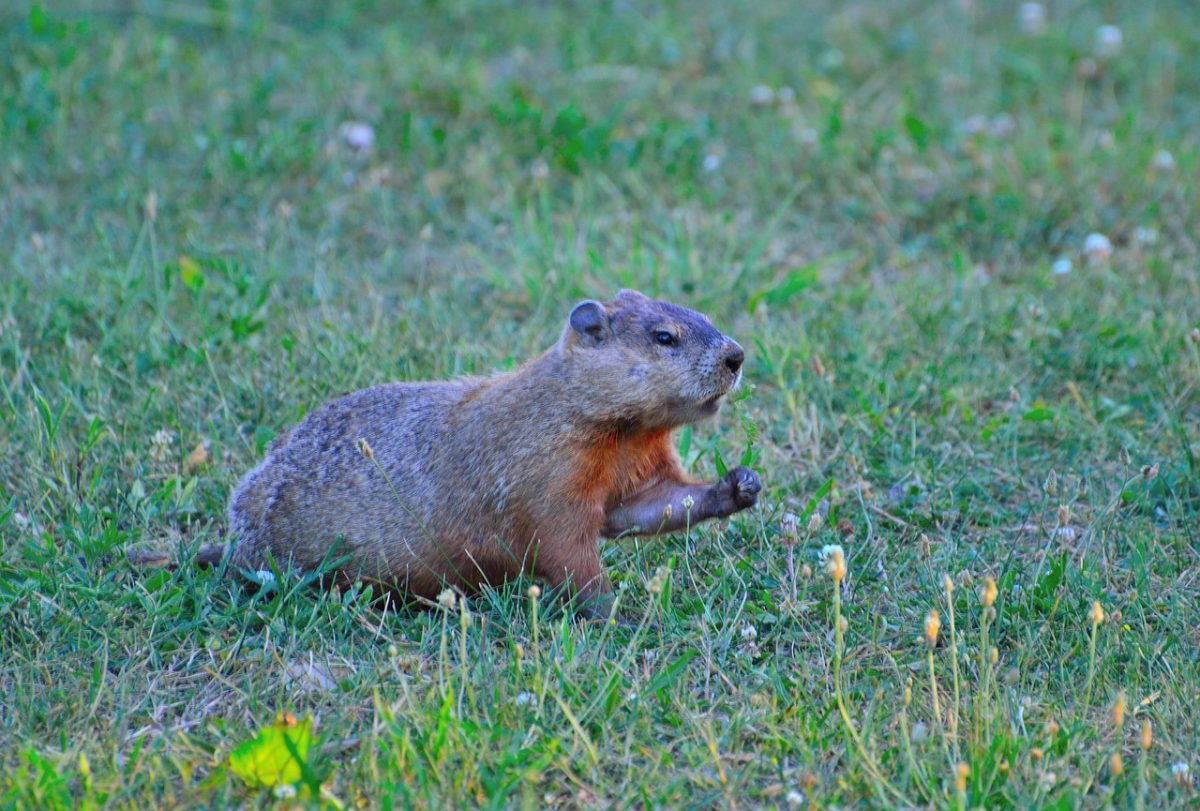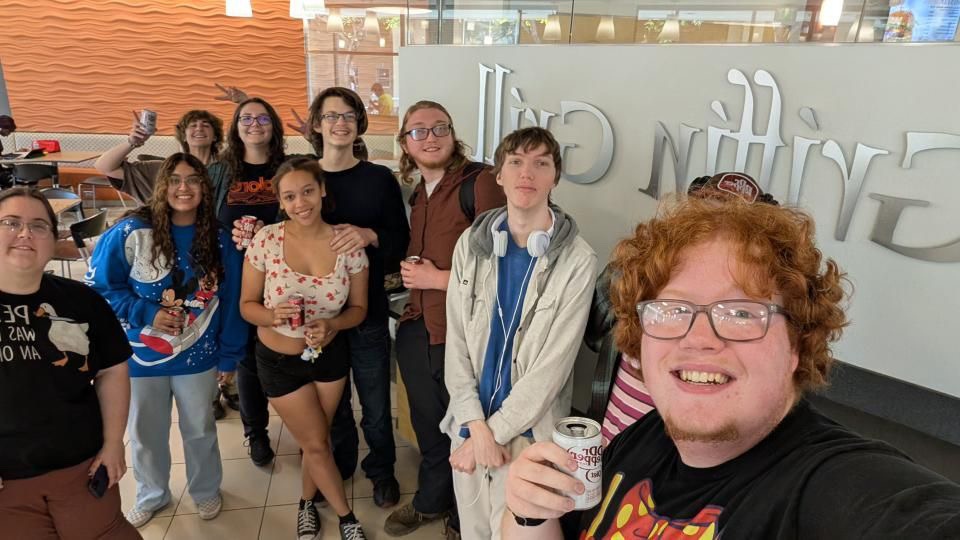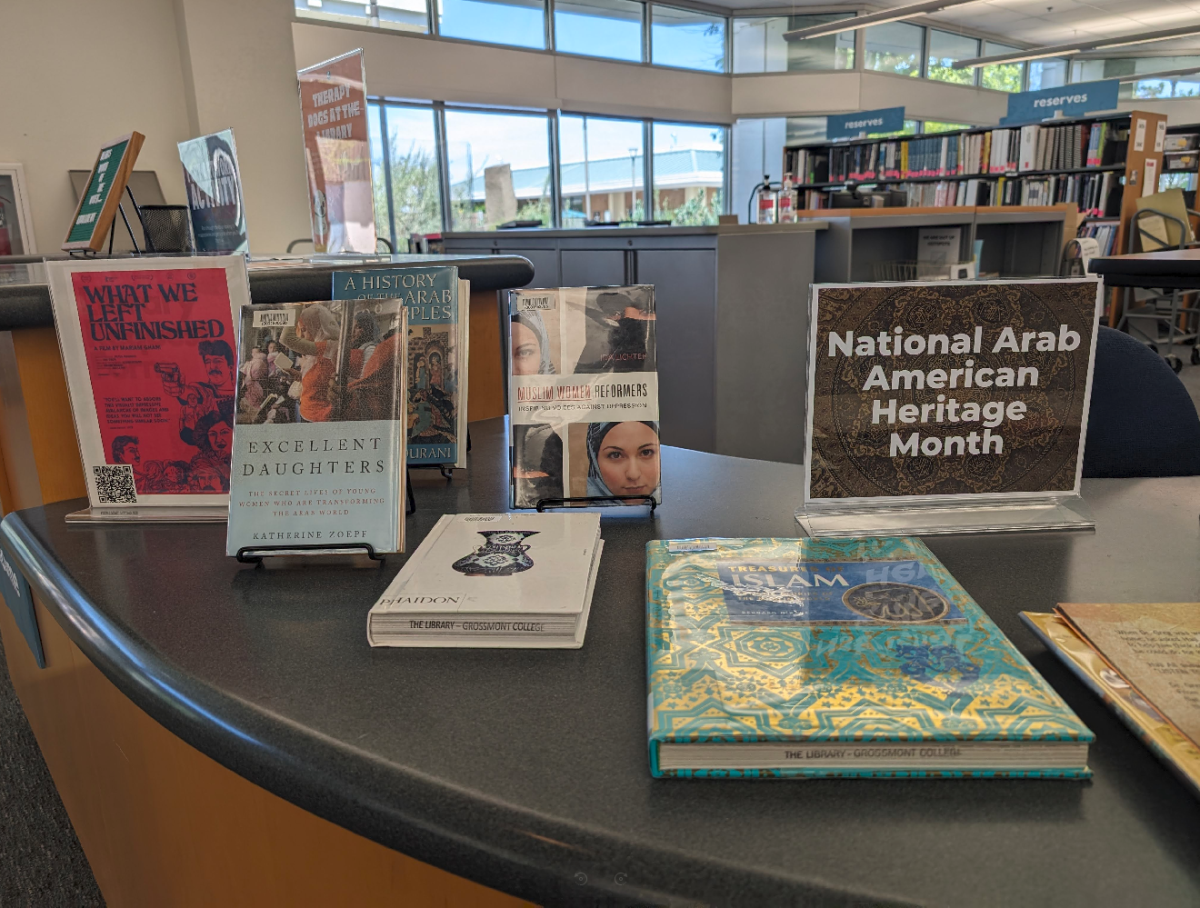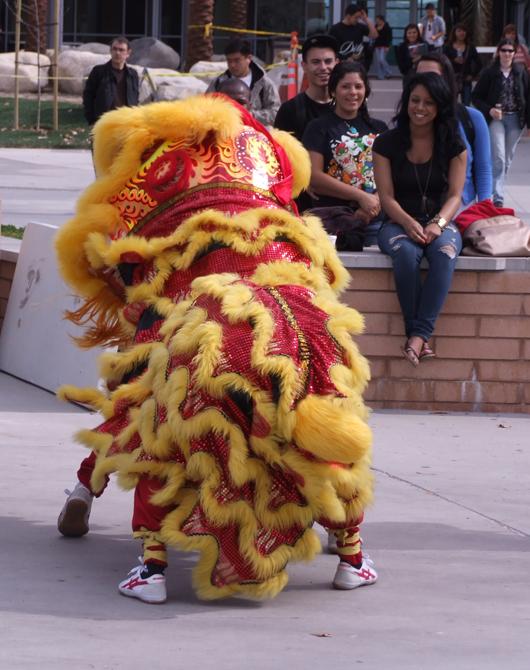
GROSSMONT COLLEGE– There was line dancing, Chinese style tea, drums, dragon dancers, egg rolls and fortune cookies out in the quad Monday morning as the World Language Department celebrated Chinese New Year.
Members of GDPT Hoa Nghiem, a non profit organization, were out in the quad hitting the drums and line dancing, and entertaining the students with their dragon dance.
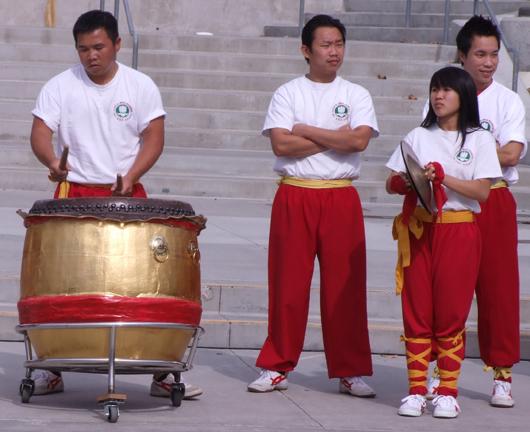
Kenny Nguyen, a member of the troupe, said, “It is good luck to participate line dancing for the New Year in China”. Yolanda Guerrero, Chair of World Language, said that, “this is our first annual celebration of the Chinese New Year; we hope to have this be an ongoing tradition.”
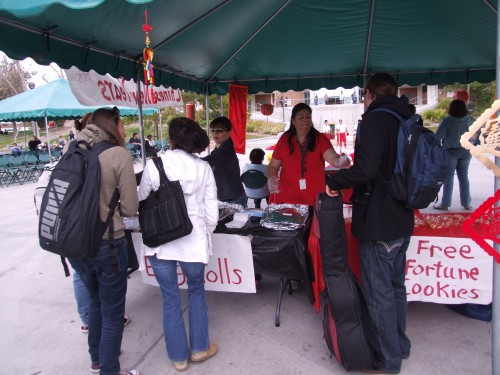
Guerrero also helped distribute fortune cookies and both vegetable and beef egg rolls for the event. Jinhua Liu, another volunteer and professor at Grossmont, was helping to serve the tea when the GC Summit asked her about the holiday.
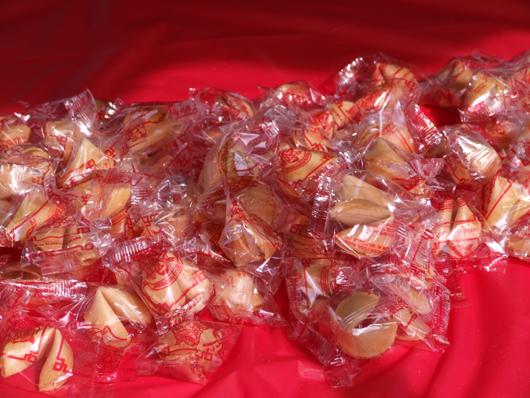
“In China, they do it to the extreme,” Liu said. “Everywhere it’s crowded and loud, with fireworks and drums and dancing. You can’t even hear yourself talking.” Unlike the western New Year, the Chinese New Year is celebrated over a 15-day period.
China has over 6,000 years of history, according to Liu. She said the Chinese were the first to use the lunar calendar, in which the year began a few weeks after the winter solstice.
The celebration on Monday marked the “Festival First Day” in what is now a “Year of the Dragon.” In a 12-year cycle, Chinese years celebrate the dragon, snake, horse, goat, monkey, rooster, dog, pig, rat, ox, tiger and rabbit. According to Wikipedia, Chinese astrologers believe that people born under the sign of the dragon will be “magnanimous, stately, vigorous, strong, self-assured, proud, noble, direct, dignified, eccentric, intellectual, fiery, passionate, decisive, pioneering, artistic, generous, and loyal.” Additionally, people born in dragon years also “can be tactless, arrogant, imperious, tyrannical, demanding, intolerant, dogmatic, violent, impetuous, and brash.”
Not only students of Chinese ancestry could feel a little touch of home in Monday’s celebration. Ruth Uzongu, an Igbo from eastern Nigeria, said her culture uses similar type drums that the Chinese do for celebrations.
While the event did not attract as much attention as it might have in the period before the Griffin Center opened, Guerrero said she already anticipates requesting another grant to hold a second annual Chinese New Year’s celebrtion in the Spring Semester of 2013.
*
Burke is a student in Media Comm 132B. He may be contacted at [email protected]



